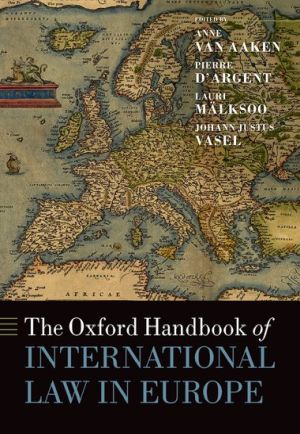
This handbook provides a comprehensive account of how international law is understood and practiced in Europe, which is defined for the purposes of the book as Council of Europe countries, in the past and in the present. It is separated into parts covering Europe's values, intellectual traditions, and institutions, as well as examinations of European countries and regions.
A diverse group of leading scholars and practitioners of international law are led by three overarching focus points: the success and failures of the pacifying effect of international law, the diversity of international legal experiences and traditions within Europe, and the impact of European ideas on international law globally. By examining these areas, the book also analyses Europe's changing role in the world, and the impact of global influences on the understanding of international law in European countries.
The book is a study of regionalism in international law, but also a study of the impact of a region which, at least historically, has had an overwhelming influence on the development and interpretations of international law.